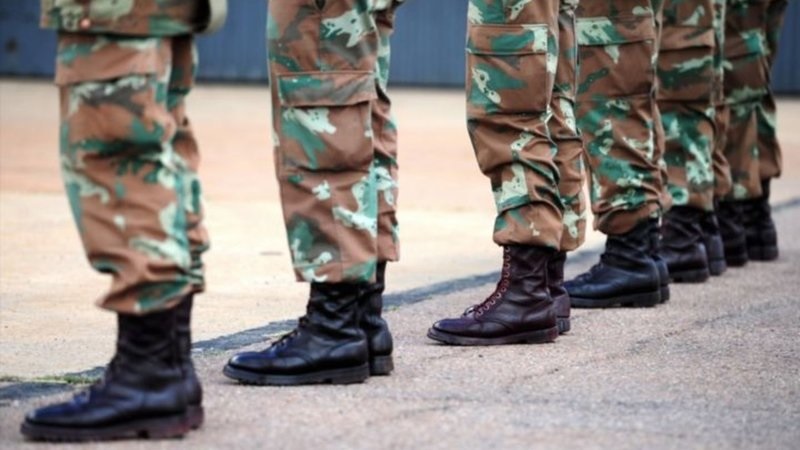The South African National Defence Force (SANDF) is governed by a strict dress code which regulates and dictates how the military uniform should be worn. In a strongly worded statement on Wednesday, the SANDF said its regulatory framework states that no clothing should be worn with official uniform, so all members are expected to conform to that. SANDF spokesperson Brigadier-General Mafi Mgobozi was commenting on the disciplinary hearing of Major Fatima Isaacs, who has refused to remove her headscarf, which she wears under her beret. On Tuesday, Isaacs was charged in a military court at the Castle of Good Hope for “willful defiance and disobeying a lawful command”. The case was postponed to 7th August.
Speaking to VOC on Wednesday, Mgobozi said religious affiliation is recognised by the defence force under the guidance and leadership pf the chaplain-general of the SANDF.
“Every person who joins the defence force is not only taught basic training but about policies and regulations including the laws governing the membership of the SANDF and its code.”
Major Isaacs has remained firm in her resolve to wear the headscarf during her ten years of service in the army, but her been met with upheaval from her various ranking officers. After she was issued with a final written warning last week, she had had enough, and decided to defend her decision in court. Her advisor has argued that the SANDF is violating her right to religious freedom, as guaranteed in the Bill of Rights and the Constitution.
Mgobozi said while the SANDF respects the Constitution of the country, it is bound by a military culture it must uphold.
“In the SANDF, there are many other religious groups, who practise their religion within the confines of the military culture, observing its dictates. As the defence force, we have one culture, which is a military culture. So all members are expected to adhere to the military culture and code,” said Mgobozi.
“If we are going to allow all these things to happen, it will not create a good image for the SANDF.”
Asked if the SANDF’s strict dress regulations could be reviewed, Mgobozi conceded that there was “room for improvement”. The SANDF Muslim chaplaincy has been engaging the Muslim Judicial Council and other religious bodies on issues of religious identity in the military.
The South African National Defence Union (Sandu) believes the military’s rules and values should be aligned with the Constitution.
“A soldier is simply a citizen in uniform. So they have the same constitutional rights as anyone else under the South Africa constitution and this should be accommodated,” said SANDU spokesperson Pikkie Greef.
Greef believes the disciplinary case should follow due process, but that Major Isaacs is well within her right to take further legal action.
“If the court order is contrary to one’s constitutional rights, then that would constitute an unlawful order. One is not under any legal obligation to obey an unlawful order. In this case, it would need to be argued in the military court that the order is illegal so the state can prove that the command was given was lawful. Once successfully illustrated that it is contrary to constitutional rights, then the court should find it is not a transgression. If it [the court] finds erroneously that it’s a lawful order, then one should take it on appeal, even if it ends up in the Constitutional court.”
He referred to one precedent in the military appeals court where a military member was charged fo refusing to remove an African cultural symbol he had worn on his arm. In the end, he was acquitted in the appeals court, because it was declared “unconstitutional and unlawful”.
Greef believes Major Isaacs should also lodge a complaint with the CRL Commission, which is mandated to protect religious and cultural rights.
“This is clearly a human rights issue and a constitutional issue. I would even go as far as a high court application against the fact that the regulations does not make provision for religious equality and it should be amended.”
Asked about the underlying issues of racism and Islamophobia within the South African military, Greef admitted that it is a serious problem.
“There can be no reasonable explanation for failing to adopt to amend the policy that provides for religious freedom. It is a precedent the world over that militaries and advanced constitutional democracies like the US and UK has provisions for religious expression. For those who suffer from their own bigotry, if they don’t approve of this, they don’t have to be in the defence force.”
VOC






 WhatsApp us
WhatsApp us 

